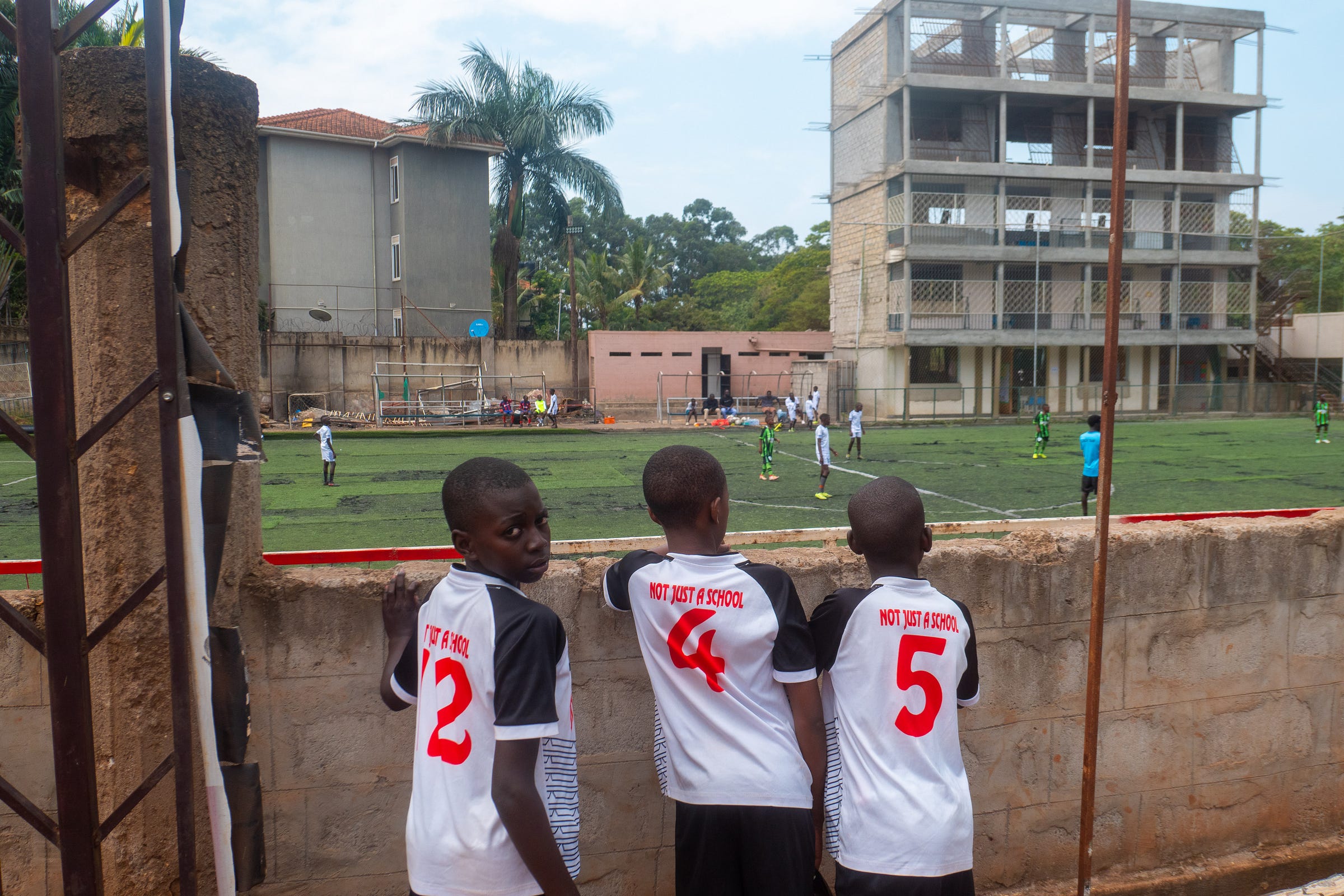A brief foray into Dallas, missing Kampala, and some thoughts on over-tourism
Grab Bag Wednesday
(I’ve been dealing with a lingering post-travel cold, running around renewing my passport (I’m close to running out of pages, which is an actual problem I never expected to have)1, flying to Dallas for an interview (more below), and so in that hectic spirit, instead of one long essay, this week is a grab bag of shorter essays!)
A few more thoughts about Kampala from Dallas
I didn’t expect to be thinking about Kampala while sitting in an Irving, Texas Starbucks, much less longing for it, but the antiseptic strip mall (Las Colinas Village) I was in, the preceding eighteen hours immersed in a cold empty utilitarianism, made me nostalgic for the unruly masses of people, of a warmth that, while maddening at times, was at least human.
Las Colinas is a perfectly fine neighborhood, and anyone from the shanty towns of Kampala would be over the moon if they could live there, certain they’d won life’s lottery. It’s safe, wealthy, functional, clean, and most of all, a wonderful environment to raise your children, and if any Kenyan or Ugandan asked me for their advice, I would say yes, if you can, immigrate to Las Colinas, because as I’ve written, I’m not foolish enough to romanticize destitution.
Still, by moving to Las Colinas, or the thousands of other indistinguishable US towns, that person would be making a trade, gaining material wealth, while giving up an elementary part of being human, which is best described as communal, but is deeper than that. It’s about thriving and flourishing, in the ways people have for millions of years understood what that means.
There is a richness of life in Kampala (and Nairobi, Hanoi, Sofia, Ulaanbaatar, etc) that’s missing in so much of the US, that can’t be measured, can’t be displayed in a spreadsheet, but is equally constitutional to living a full life.
There is an atomized emptiness in Las Colinas, as there is across so much of the well-to-do developed world. You live in your climate-controlled duplex, a home no different than a thousand others, and when you leave it, shuttle via your F-150, or your Toyota RAV4, to another climate-controlled sensibly efficient building.
You are cocooned in a perfectly sterile world of efficiency and luxury, with chance encounters, such as bumping into strangers, rung out of life. Almost all the messy parts of being human, the muddled sloppy and organic parts, have been eliminated, or at least minimized, usually justified by an appeal to safety.
God forbid you should do something as crazy as trying to walk from your apartment to the strip mall, like I tried to do. Walking in Irving, Texas is the act of a mad man. Irving surprisingly provides sidewalks, but they are perfunctory, long, straight un-shaded strips directly next to loud eight-lane roads, that nobody uses, because walking along them is as pleasant as a root canal. A hot, loud, exhaust-filled, lonely journey, that nobody else is silly enough to do. The only other people I saw during my walks (or on the buses I eventually took) are physically, economically, or legally incapable of having a car, and lonely enough they don’t have friend or relative with one.
I can’t even give Irving a low walkability score because nobody is ignorant enough to want to walk there. You drive, you idiot! What type of backwards thinking is the idea of walking around? That’s poor-people thinking and my parents came here so I wouldn’t have to do that you silly man.
Couple that human emptiness with its repetitive, boring, but efficient, aesthetic — the bland tract housing, the pre-fab strip malls, the copy and paste franchises plopped down along the roadside, the built-in-a-week berm, heavy-flood prevention landscaping, that gives you absolutely no sense of place — being in Irving begins to feel mentally prison-y. So antiseptic as to be numbing.



